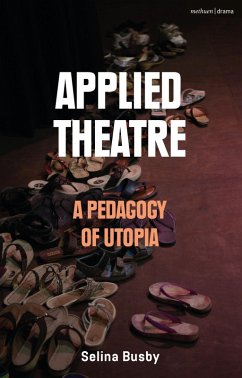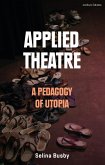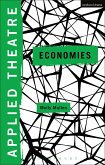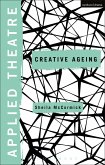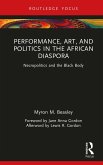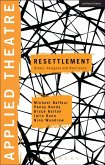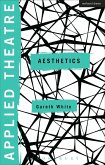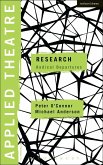Shortlisted for the 2022 TaPRA David Bradby Monograph Prize
Applied Theatre is a widely accepted term to describe a set of practices that encompass community, social and participatory theatre making. It is an area of performance practice that is flourishing across global contexts and communities. However, this proliferation is not unproblematic. A Pedagogy of Utopia offers a critical consideration of long-term applied and participatory theatre projects. In doing so, it provides a timely analysis of some of the concepts that inform applied theatre and outlines a new way of thinking about making theatre with differing groups of participants.
The book problematizes some key concepts including safe spaces, voice, ethical practice and resistance. Selina Busby analyses applied theatre projects in India, the USA and the UK, in youth theatres, homeless shelters, prisons and with those living in informal housing settlements to consider her key question: What might a pedagogy of utopia look like? Drawing on 20-years of practice in a range of contexts, this book focuses on long-term interventions that raise troubling questions about applied theatre, cultural colonialism and power, while arguing that community or participatory theatre conversely has the potential to generate a resilient sense of optimism, or what Busby terms, a 'nebulous utopia'.
Applied Theatre is a widely accepted term to describe a set of practices that encompass community, social and participatory theatre making. It is an area of performance practice that is flourishing across global contexts and communities. However, this proliferation is not unproblematic. A Pedagogy of Utopia offers a critical consideration of long-term applied and participatory theatre projects. In doing so, it provides a timely analysis of some of the concepts that inform applied theatre and outlines a new way of thinking about making theatre with differing groups of participants.
The book problematizes some key concepts including safe spaces, voice, ethical practice and resistance. Selina Busby analyses applied theatre projects in India, the USA and the UK, in youth theatres, homeless shelters, prisons and with those living in informal housing settlements to consider her key question: What might a pedagogy of utopia look like? Drawing on 20-years of practice in a range of contexts, this book focuses on long-term interventions that raise troubling questions about applied theatre, cultural colonialism and power, while arguing that community or participatory theatre conversely has the potential to generate a resilient sense of optimism, or what Busby terms, a 'nebulous utopia'.

